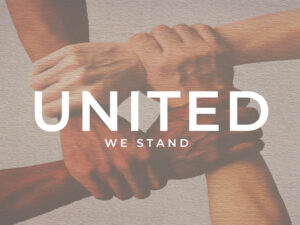 In Galatians 3:28, Paul tells the Galatian church that they are now “all one in Christ Jesus.” For the Galatians who struggle with bringing together in one church people with very different backgrounds, that seems to be a challenge. In his book, Participating in God’s Life, Leonard Allen describes what is happening in Galatia as part of God’s greater work in the world to move people “out of brokenness and into unity.” It is the direction that God has been leading people toward since early in the book of Genesis. Allen continues:
In Galatians 3:28, Paul tells the Galatian church that they are now “all one in Christ Jesus.” For the Galatians who struggle with bringing together in one church people with very different backgrounds, that seems to be a challenge. In his book, Participating in God’s Life, Leonard Allen describes what is happening in Galatia as part of God’s greater work in the world to move people “out of brokenness and into unity.” It is the direction that God has been leading people toward since early in the book of Genesis. Allen continues:One episode in particular emphasizes a shift in direction or a new momentum in God’s plan. From the story of the Tower of Babel we learn that when humans, acting out of pride, seek to unify themselves, they are scattered and their languages are confused. With this in mind, jump ahead several thousand years to Pentecost. Here we see the coming together of many nationalities to hear God’s Word preached by Peter. But the results of Babel make this impossible—how can these diverse people understand the unifying message of Peter? Quite simply, God intervenes and allows the Apostles to speak in languages that everyone present can understand.The structure is the exact opposite of Babel’s: at Babel a unified humanity comes together to celebrate its own unity and is scattered by God; at Pentecost fragmented humanity comes together to hear from God and God makes that word available to everyone in their own language. The result is that unity, though not achieved, is given. The sign of this new unity is that many diverse people are baptized into one, unified name of Christ Jesus. Babel is reversed and continues to be reversed each time God remakes very different people into brothers and sisters.
Through the power of the Spirit on Pentecost, God overcomes the brokenness of the world. The unifying story of Jesus that was told then day still heals broken lives today!
Brian
